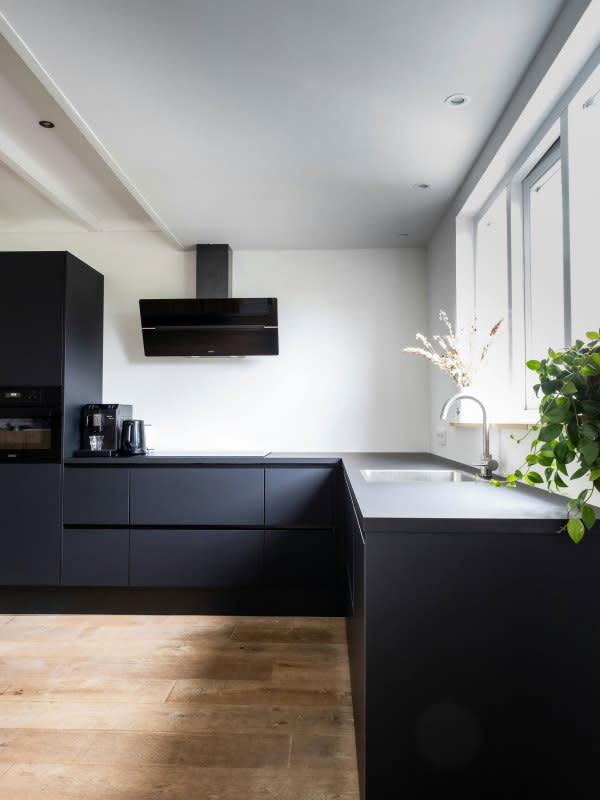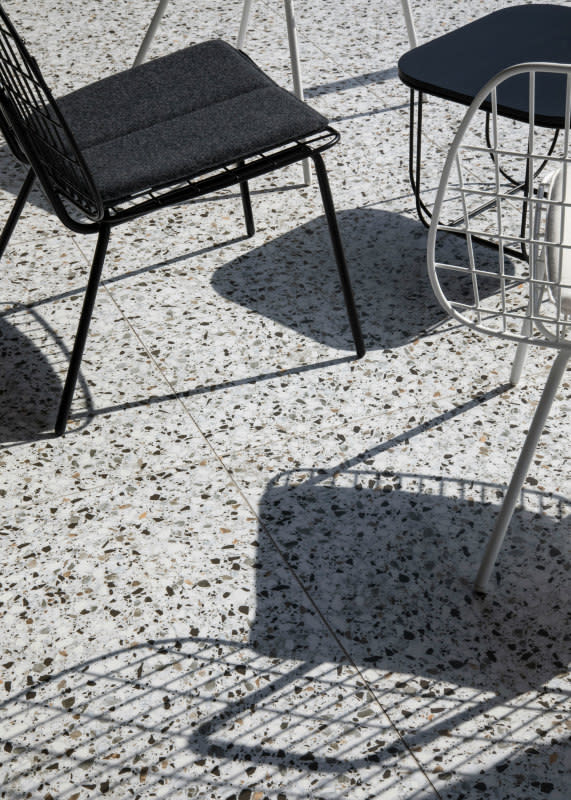Environmentally-Friendly Flooring Is Anything But Boring
Consumers used to choose a type of flooring choice based on durability to heavy foot traffic and stain resistance. Now they also consider the toxic chemicals in the manufacturing process, the carbon footprint, and the off-gassing of volatile organic compounds (VOCs) that contribute to indoor air pollution. Enter, eco-friendly options.
Eco-friendly flooring options can offset the environmental impact of construction, and contributes to better indoor air quality. Furthermore, it supports responsible resource management. The wide variety of sustainable options opens the door to create a fresh aesthetic appeal for your perfect space. So, when it comes to designing or renovating, it's no surprise that sustainable flooring materials have become a major consideration for environmentally-conscious individuals and businesses alike.
1. Bamboo Flooring
$3 to $8 per square foot
Derived from the bamboo plant, this renewable resource grows much faster than traditional hardwood trees.
Being grown more widely making it an increasingly sustainable choice
Often grown to reduce other environmental impacts
Harder and more durable than many hardwoods
Resistant to moisture and insects
2. Cork Flooring
$3 to $10 per square foot
Cork floors are made from the bark of cork oak trees. It's a sustainable material that can be harvested without harming the tree.
Renewable and biodegradable material
Some cork flooring is recycled from raw materials in the wine industry
Soft and comfortable underfoot
Naturally resistant to mold, mildew, and pests
3. Recycled Glass Tile
$10 to $20 per square foot
Recycled glass tile flooring is made from post-consumer or post-industrial glass, diverting waste from landfills and reliance on natural resources.
Environmentally friendly responsible choice
Wide variety of colors and styles
Highly durable and resistant to stains
4. Linoleum
$2 to $5 per square foot
Linoleum flooring can be made from natural materials such as linseed oil, pine rosin, wood flour, wood dust, and cork dust.
Biodegradable and recyclable
Antimicrobial properties
Durable, long-lasting, and a familar, friendly flooring choice
Related: Can You Remove Stains From Light Floor Grout? Yes, and This Technique Works the Best

Photo by Sven Brandsma on Unsplash
5. Reclaimed Wood$5 to $15 per square foot
Recycled materials like a reclaimed wood floor are salvaged from old buildings, barns, and other structures, giving new life to existing materials.
- Provides real hardwood floors but reduces the demand for raw materials
- Unique character and patina
- An ideal choice to add historical charm
$2 to $10 per square foot
Concrete is durable and long-lasting, reducing the need for frequent replacements.
- Thermal mass benefits lead to an energy efficient space (an excellent choice for hot weather climates)
- Polished concrete or a naturally stain offer
- Low maintenance and resistant to water and stains
$4 to $12 per square foot
Rubber flooring is made from recycled rubber tires, providing a durable and cushioned surface for various applications.
- Recycles tires, reducing landfill waste, and offsetting environmental impacts
- Shock-absorbent flooring material that is comfortable to walk on
- Resistant to water, stains, and scratches

Photo by Jean-Philippe Delberghe on Unsplash
8. Terrazzo Flooring$10 to $20 per square foot
Terrazzo flooring consists of recycled glass, marble, or other aggregates mixed with cement or epoxy resin.
- This eco-friendly flooring utilizes recycled materials, reducing waste
- Versatile design options and customizable patterns
- Long-lasting and low maintenance
$4 to $10 per square foot
Hemp flooring is a natural product made from the fibers of the hemp plant.
- Multi-use, sustainable crop that reduces carbon dioxide among other environmental benefits
- Grown easily without harsh chemicals
- Durable and resistant to mold and mildew
- Naturally antimicrobial and hypoallergenic
$5 to $15 per square foot
An eco-friendly carpet made from natural fibers obtained from sheep, offering a renewable and biodegradable flooring option.
- Agricultural byproduct (sustainable and renewable material) with numerous benefits
- Naturally resistant to stains and dirt
- A natural insulator that improves indoor air quality and reduces energy costs

Photo by Kam Idris on Unsplash
11. Engineered Hardwood$3 to $7 per square foot
This popular choice offers a degree of sustainability while being easy to source.
- Traditional hardwood flooring alternative that minimizes amount of lumber used by combining with synthetic materials
- Lack of fibers and grout hold less dust mites which improves indoor air quality
- Comes in a wide range of colors and styles.
$10 to $20 per square foot
A timeless classic of flooring products.
- Made from natural materials such as clay, feldspar, silica
- Durable and low-maintenance
- Has seen manufacturing changes to increase energy efficiency and commitment to sustainability
$10 to $100 per square foot (depends on the type of ceramic)
A recycled material from demolition projects to add to sustainable flooring options whilst reducing environmental impact.
- Regular ceramic tiles are made from clay
- They are often painted artistically and used in conjunction with other tiles or stone flooring
- Countless varieties
Related: New Kitchen Trends Shaping the Industry—Plus, What’s Out

